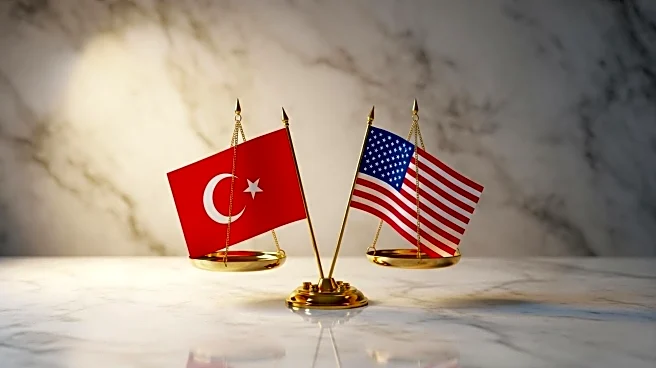What's Happening?
Turkey has announced the termination of additional tariffs on U.S. imports, which were initially imposed in 2018. These tariffs affected a range of products including passenger cars, fruits, rice, tobacco, alcoholic beverages, solid fuels, and chemical products. The decision was published in Turkey's Official Gazette as President Tayyip Erdogan visited the United States. The tariffs were originally a retaliatory measure against U.S. tariffs implemented by President Trump during his first term. Erdogan's visit to the U.S. includes attending the United Nations General Assembly and a scheduled meeting with President Trump.
Why It's Important?
The removal of these tariffs marks a significant shift in trade relations between Turkey and the United States. It could lead to improved economic ties and increased trade between the two nations. U.S. exporters of the affected goods may benefit from reduced costs and increased market access in Turkey. This development may also influence broader geopolitical dynamics, as Turkey seeks to strengthen its diplomatic and economic relationships with the U.S. The move could be seen as a gesture of goodwill, potentially easing tensions and fostering cooperation on other international issues.
What's Next?
Following the removal of tariffs, both countries may explore further opportunities to enhance bilateral trade and investment. The meeting between President Erdogan and President Trump could lead to discussions on additional economic collaborations or agreements. Stakeholders in both countries, including businesses and trade associations, will likely monitor the situation closely to assess the impact on trade flows and market conditions. Future negotiations may focus on resolving other trade disputes or expanding trade agreements.
Beyond the Headlines
The decision to end tariffs may have deeper implications for Turkey's foreign policy strategy, signaling a shift towards more cooperative international relations. It could also reflect Turkey's desire to align more closely with Western economic standards and practices. Additionally, this move might influence Turkey's standing within international trade organizations and its approach to future trade negotiations with other countries.










